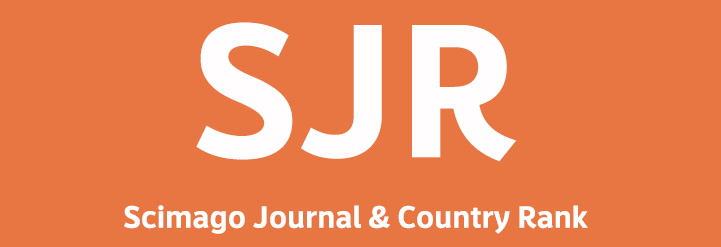Liftoff of Propane - Air Diffusion Flames By Axis Symmetric Co-flow Air Injection
DOI:
https://doi.org/10.29017/SCOG.32.3.853Keywords:
diffusion, combustion, lifted-flame, lifted-distanceAbstract
Combustion of gas with diffusion system is widely used in many residential gas appliances like stove, engine furnaces and industrial furnaces. Phenomenon of lifted flame is often happened at diffusion flame where the stream of fuel and air into combustor flow separately. Hence the combustion process needs time so that mixing of air and fuel reach the condition ready for burnt. This condition make the burner tip protected from high thermal load and more safe to operate. In this paper, propane was ejected into quiescence air through nozzle having 1.8 mm holes diameter. Fuel flow rate was increased until liftoff conditions exceed; hereinafter flow rate of fuel was made constant at 69 ml/s and air was ejected around of fuel with axis symmetric flow. Liftoff behavior of diffusion flames was investigated for various air flow rate: 17.9 ml/s – 89.9 ml/s. Lifted distance decreased from 130 mm to 90 mm when air was injected with flow rate of 19.1 ml/s, however, it increased to 100 mm when air flow rate increased to 35.9 ml/s. Cold-flow simulation showed the moderate air flow rate give a faster density degradation at axial line compared to larger air flow rate. It means moderate flow rate of air support a better air-fuel mixing than faster one.
References
Peter, N., Turbulent Combustion, Cambridge
University Press, Cambridge, p. 238, 2000.
Stephen R.Turns, “An Introduction to Combustionâ€,
McGraw-Hill, Inc, 1996.
Cha M.S. and Chung S.H.,The Combustion Institute,
-128, 1996
L.K.Su,O.S.Sun, M.G.Mungal, J. Combustion
and Flame 144, 494-512, 2006.
K.A.Watson, K.M.Lyons, J.M.Donbar, .D.Carter,
Combustion and Flame 119, 199-202, 1999.
C.Maurey, A. Cessou, B.Lecordier, D.Stepowski,
Proc.Combust.Inst. 28, 545-551, 2000.
Mark A.Mikofski, Timothy C.Williams, Christopher
R.Shaddix, Linda G.Blevins, “ Flame height
measurement of laminar inverse diffusion
flamesâ€, J. Combustion and Flame 146, 63-72,
P.S.Cumber, M.Spearpoint, “A computational
flame length methodology for propane jet firesâ€,
Fire Safety Journal 41, 215-228, 2006.
E.L.Kazantsev, “Industrial Furnaces Design and
Calculation Reference Book “ , Mir Publishers
Moscow, 1977.
Vanquickenborne,L. and Van Tiggelin, A., 1966,
The stabilization mechanism of lifted diffusion
flames. Combustion Flame 10, 59-69
Eickhofff,H., Lenze,B. and Leuckel, W. 1984, “
Experimental investigation on the stabilization
mechanism of jet diffusion flamesâ€, Twentieth
Symposium (International) on Combustion, pages
-318, The Combustion Institute, Pittsburgh.
Kalghatgi, G.T., 1984, “Lift-off heights and visible
lengths of vertical turbulent jet diffusion flames
in still airâ€,Combustion Science and Technology
, 17-29.
Donnerhack, S.and Peters,N.,1984, “Stabilization
heights in lifted methane-air jet diffusions flames
diluted with nitrogenâ€, Combustion Science and
Technology 41, 101-108.
Broadwell,J.E., Dahm, W.J.A,. and Mungal,
M.G.,1984, “Blowout of turbulent diffusion
flamesâ€, Twentieth Symposium (International) on
Combustion, pages 303-310, The Combustion Institute,
Pittsburgh.
Miake-Lye, R.C. and Hammer, J.A., 1988, “Lifted
turbulent jet flames: A Stability criterion based on
the jet large scale structureâ€, Twenty Second
Symposium (International) on Combustion, pages
-824, The Combustion Institute, Pittsburgh.
Schefer, R.W., Namazian, M., Filtopoulos, E.E.J.,
and Kelly, J.T., 1994, “Temporal evolution of turbulence/
chemistry interactions in lifted, turbulent
jet-flames, Twenty-Fifth Symposium (International)
on Combustion, pages 1223-1231, The
Combustion Institute, Pittsburgh.
Muñiz, L. and Mungal, M.G., 1997, Instantaneous flame-stabilizations velocities in lifted-jet diffusion
flames, Combustion Flame 111,16-31.
Corey D.Brown, Kyle A.Watson and Kevin
M.Lyons,1999, “ Studies on lifted flames in co
flow : The stabilization mechanism in the nearand
far-fieldsâ€, Flow Turbulent and Combustion
, 249-273, Kluwer Academics Publisher, Netherlands.
Joan Boulanger, Luc Vervisch, Julien Reveillon,
Sandip Ghosal, 2003, “Effect of heat release in
laminar diffusion flames lifted on round jets, Combustion
and Flame 134, 355-368.
Eduardo Fernandez-Tarrazo, Marcos Vera,
Amable Linan, 2006, “Liftoff and blowoff of
diffusion flame between parallel streams of
fuel and air “,Combustion and Flame 144, 261 –
Nam Il Kim, Kaoru Maruta, 2006, “A Numerical
Study on Propagation of Premixed Flames in
Small Tubesâ€, Combustion and Flames 146, 283-
A.Kempf, R.P.Lindstedt, J.Janicka, 2006, “Largeeddy
simulation of a bluff-body stabilized
nonpremixed flameâ€, Combustion and Flame 144
(2006) 170-189
Downloads
Issue
Section
License
Copyright (c) 1970 SCIENTIFIC CONTRIBUTIONS OIL AND GAS (SCOG)

This work is licensed under a Creative Commons Attribution 4.0 International License.
Authors are free to Share — copy and redistribute the material in any medium or format for any purpose, even commercially Adapt — remix, transform, and build upon the material for any purpose, even commercially.
The licensor cannot revoke these freedoms as long as you follow the license terms, under the following terms Attribution — You must give appropriate credit , provide a link to the license, and indicate if changes were made . You may do so in any reasonable manner, but not in any way that suggests the licensor endorses you or your use.
No additional restrictions — You may not apply legal terms or technological measures that legally restrict others from doing anything the license permits.














